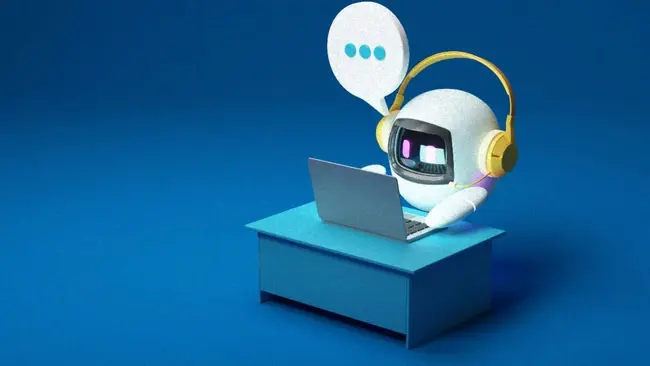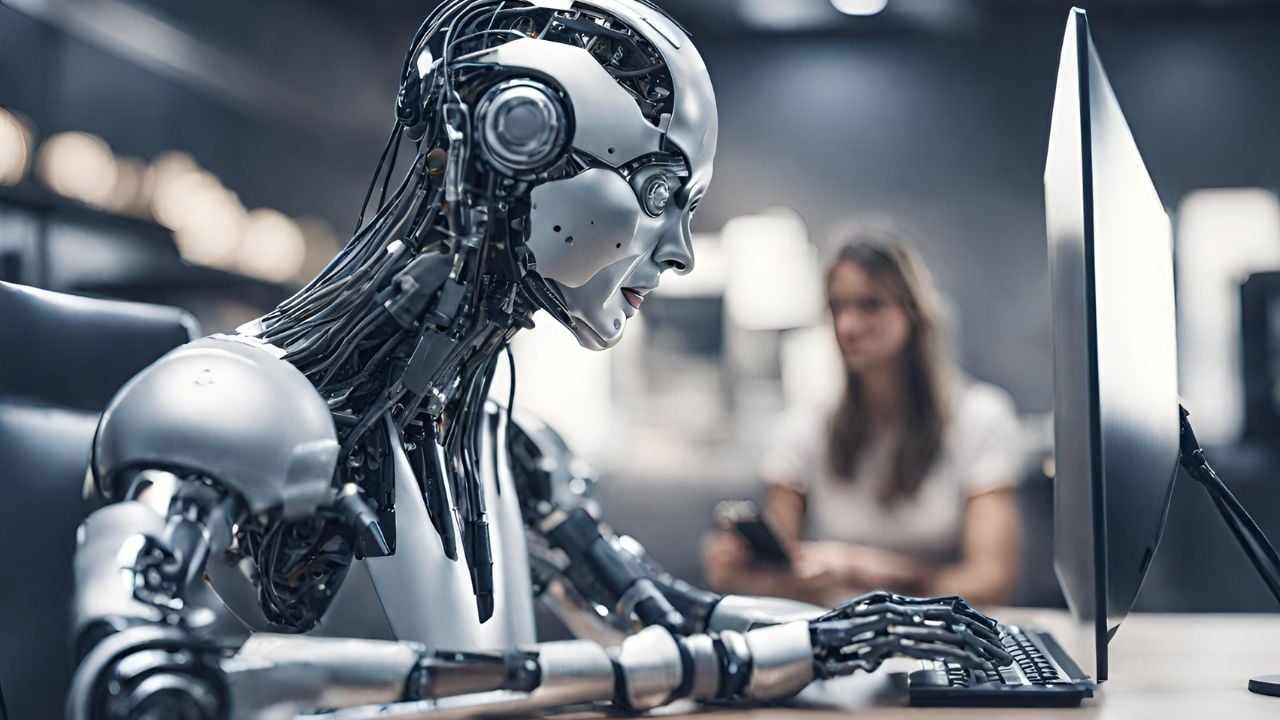Working as a programmer can be one of the most rewarding jobs in tech. Triple-figure salaries, flexible working hours, and remote working make a career in programming one of the most glamorous in the IT space – and it’s in high demand too.
The U.S. Bureau of Labor Statistics predicts a 26% increase in employment for software engineers and programmers over the next 10 years despite recent layoffs in the tech space.
But with development in AI accelerating, some say this may all soon be about change.
As large language models (LLMs) and generative AI tools become increasingly powerful and easier to access, people have begun asking the question if AI will lead to programmers losing their jobs.

Professionals in the space are worried too. A recent survey by Pluralsight found that 45% of developers were anxious or somewhat uneasy about how AI will change software development while 43% of those surveyed said they were concerned the skills they currently use as a software engineer will become obsolete very quickly.
But will AI replace programmers and software engineers? And if it does, how long will it take until these jobs become obsolete? To answer these questions, we first need to understand the role of a programmer and their day-to-day work responsibilities.
The role of programmers in software engineering
Simply put, programmers create computer software or applications by providing instructions to the computer, usually through a specific programming language.
Their core role revolves around bringing software applications to life through code. They act as translators between humans and computers to convert ideas and designs into specific instructions that computers can understand and execute.
Programmers choose the appropriate programming language (like Python, Java, or C++) and write lines of code that define the program's functionality. This code tells the computer what to do, step-by-step, to achieve the desired outcome.
After testing and confirmation, programmers integrate their code with other components of the system and deploy the application to its final environment, whether it's a website, mobile app, desktop software, or something else.
This all might seem quite simple on paper, but the reality is that programming is no easy task. One mistake in the code that goes unnoticed can lead to applications not working properly, crashes, and security vulnerabilities – hence why programmers are in such demand.
The role of AI in software engineering

It’s important to note that AI already plays a crucial role in software engineering, and many programmers already use the technology to help them with day-to-day workloads.
One of AI’s main roles in programming is automation. AI can automate repetitive tasks, suggest code solutions, and even write entire portions of programs based on your intentions, freeing programmers to focus on the creative problem-solving that truly sets them apart.
Think code completion that anticipates your next move, or bug detection that hunts down errors with superhuman precision.
Beyond automation, AI acts as a programming co-pilot. Imagine bouncing ideas off a tireless assistant who can suggest alternative approaches, analyze code efficiency, and even generate different coding styles to fit your needs. This collaborative aspect can spark innovation and lead to more robust, well-rounded programs.
But AI's true potential lies in its ability to learn and adapt. As programmers interact with these tools, AI algorithms internalize patterns and preferences, gradually becoming more attuned to their specific workflow and coding style. This personalised assistance takes programming to a whole new level of efficiency and effectiveness.
Will AI replace programmers?
While the use cases for AI in software engineering are impressive, the likelihood of the tech completely replacing programmers anytime soon is unlikely.
AI excels at crunching data and recognizing patterns, but it lacks the human ability for creative problem-solving and critical thinking. Programming often requires tackling unique challenges and making nuanced decisions, areas where AI currently falls short.
When things go wrong, programmers can adapt and troubleshoot creatively. AI, however, tends to be brittle and relies on predefined scenarios. It can struggle to handle unexpected situations or errors efficiently.
And while AI can automate some tasks, complex projects still require human oversight and guidance. Programmers are needed to set goals, define parameters, and interpret the AI's output. This collaborative approach is key to the success of software development.
Instead of replacing programmers, AI is more likely to augment their capabilities. Imagine AI tools as powerful assistants, handling repetitive tasks, suggesting solutions, and providing insights, allowing programmers to focus on higher-level thinking and strategy.
AI can make coding more accessible, allowing citizen developers or those with less technical expertise to create simple applications. This can expand the programming landscape and bring innovation from new sources.
The future of programming
The future of programming will likely be a dynamic partnership between humans and machines. AI will handle the grunt work, freeing programmers to be creative problem-solvers and visionaries. While some routine programming jobs may be impacted, the human element will remain irreplaceable.
Programmers will therefore need to adapt their skills to work effectively with AI. This includes understanding how AI tools work, learning to interpret their outputs, and developing effective communication strategies for collaboration.
So, while AI will undoubtedly transform software engineering, it's not something to fear. Instead, it's an opportunity to embrace new tools, develop new skills, and collaborate with AI to create even more amazing things.
The future of programming is bright, and it's one where humans and AI work together to build a better digital world.




Comments ( 0 )